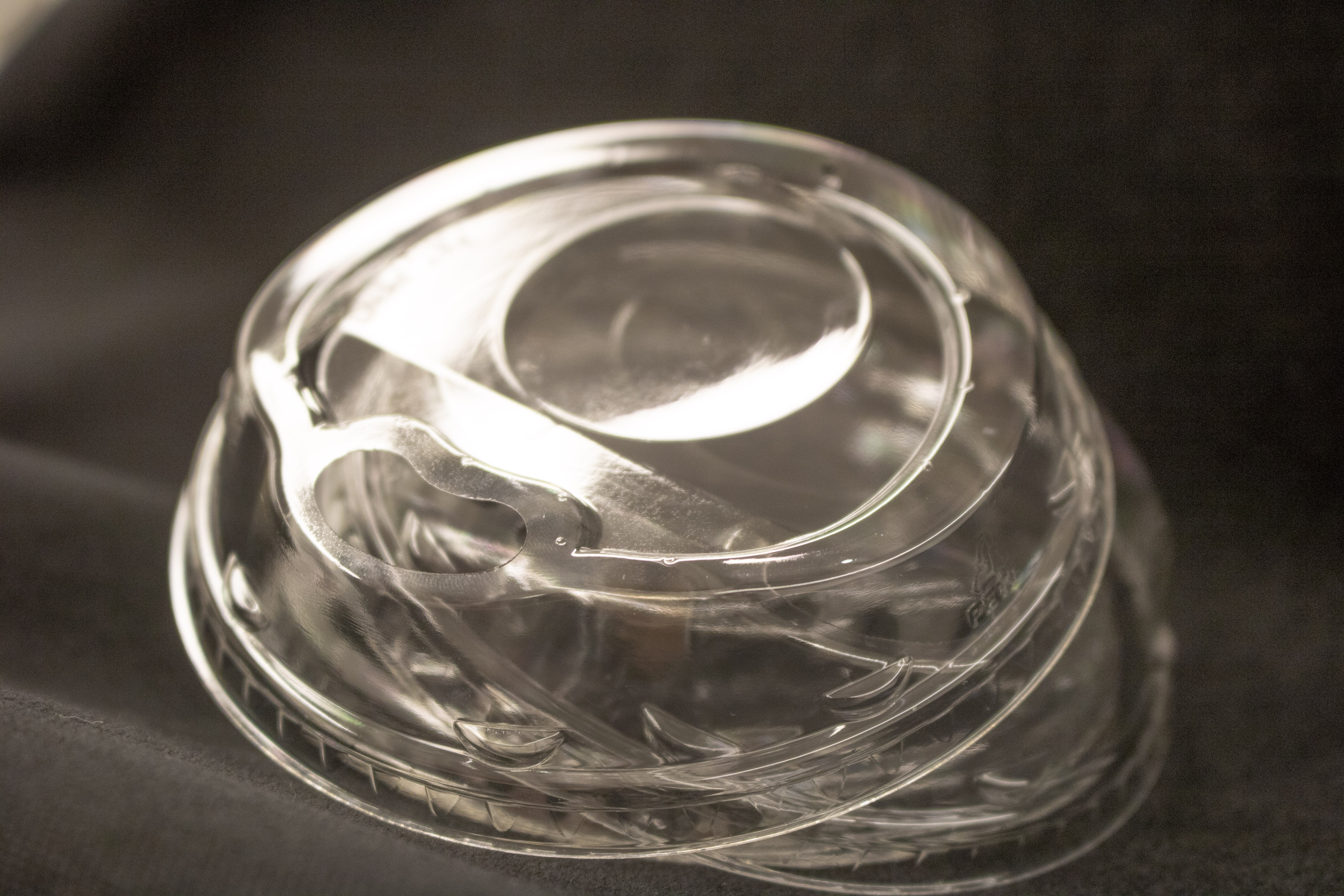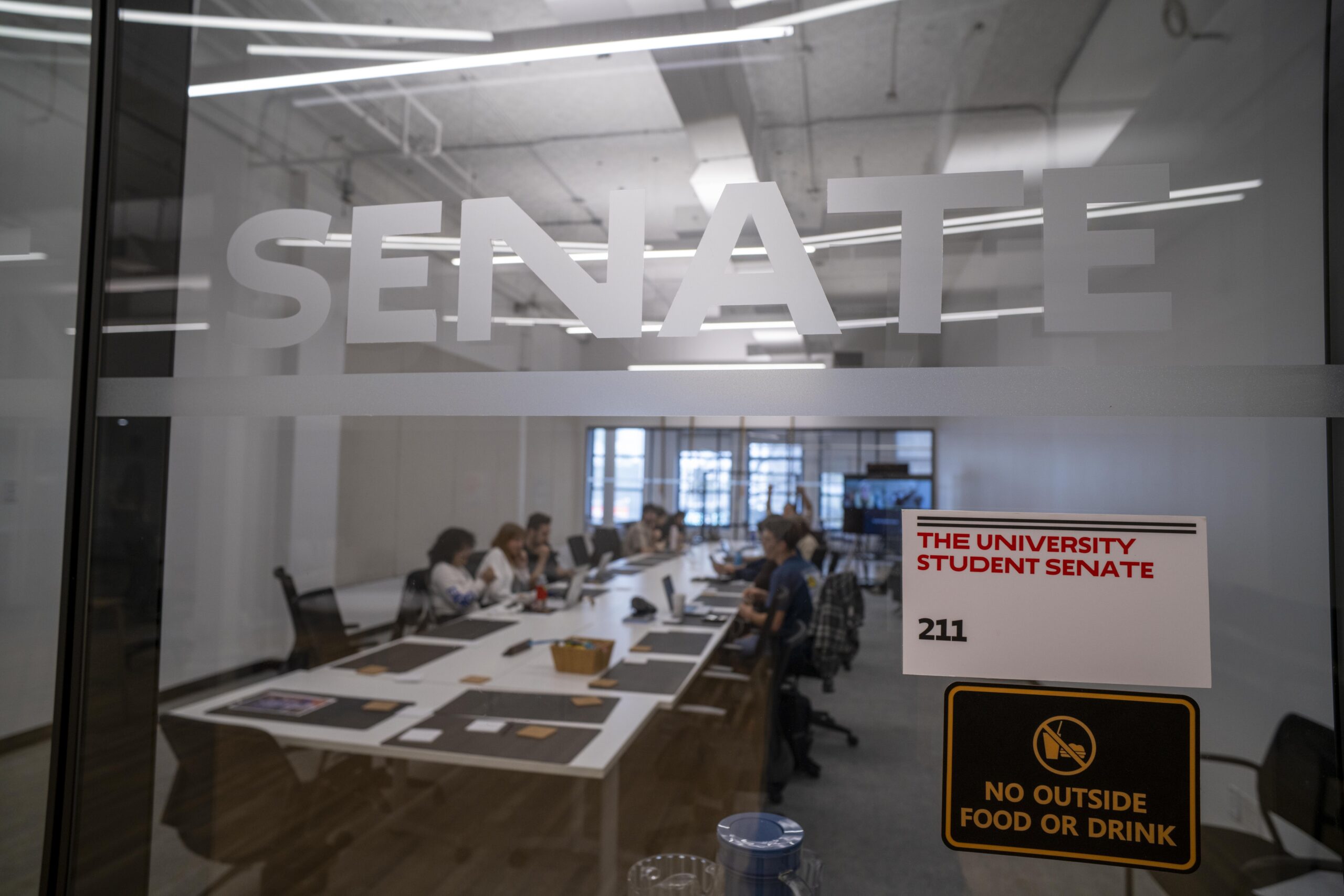After pouring a cup of iced coffee, Dali Schonfelder fumbled putting on a plastic coffee cup-like lid, which was recently adopted in the cafeteria in lieu of straws, in an effort to be more environmentally conscious.
As the Parsons sophomore left the cafeteria, iced coffee in hand, some spilled out onto her, illustrating her gripe with the eco-friendly move.
“You’re not going to save the world but just eliminating straws,” Schonfelder said. “But we’re trying, so it’s a good start.”
The new lids were introduced this semester in an effort to reduce plastic pollution.
Unlike the previous cafeteria lids that sat flat and held a straw in the center, these new Greenware lids are raised from the cup and have a larger oval opening, similar to a sippy cup, that do not require a straw.
The university decided to stop using plastic straws “following news reports that straws are one of the most pervasive waste stream items, and one of the top five that wash up on ocean beaches,” said Ed Verdi, assistant vice president of business operations.
The initial report that caused many restaurants and operations to give up straws was published in 2012 by the nonprofit Eco-Cycle, where the data came from 9-year-old Milo Cress as part of his Be Straw Free campaign.
The statistic has became relevant in the past few months after a marine biologist’s video of a turtle with a straw stuck in its nose went viral. The statistic was recently cited by large news publications such as The Washington Post, Wall Street Journal, and The New York Times.
Cress’ estimates, which involved contacting multiple straw manufacturers in the United States, put the figure at 500 million straws per day.
Cress founded the Be Straw Free campaign as a waste reduction initiative after learning that plastic straws were littering waterways and the ocean — posing a danger to marine life.
His shocking 500 million figure has continued to be publicized, prompting strawless changes across the country. Starbucks, Hyatt, IKEA, Royal Caribbean, American Airlines, Eataly and other businesses have all made promises to be fully strawless within the next few years.
Now, the only straws in the cafeteria are biodegradable and offered only by request with smoothies.
Although these new straws are more expensive, the school is having to buy less straws due to the new lids. “The financial impact of this decision is effectively zero,” Verdi said.
People with disabilities that require straws should not be concerned about the change.
“We recognize that there may be health considerations that necessitate the use of straws for some members of our community and will work to accommodate all of those needs,” said Gregory Herrera, director of business operations. “Students, faculty or staff who require this accessible tool can request one from any of our dining staff.”
For many students this change has gone unnoticed.
Brian Marshall, a senior at CoPA, believes the university is trying to be eco-friendly, particularly due to the wasteful nature of cities.
“Being in New York City, people just throw trash everywhere, so I think the school tries to be environmentally conscious,” Marshall said.
Verdi agreed that the decision to go strawless “aligns with the university’s longstanding commitment to sustainability.”
He also noted that the university emphasizes waste reduction. He did not respond to questions about the amount of waste the cups will save.
“The cafeteria offers china and flatware in a largely tray-less environment, which are recognized waste and water efficient practices,” Verdi said. “The disposable containers and utensils we do use were selected for their biodegradable and/or compostable properties.”
Matthew Mazzucco, a Lang first year student, has taken an additional step to reduce plastic waste by using metal straws instead. Mazzucco purchased his straw from Everyman Espresso by Stuy, for $1.
He decided to invest in the alternative straws in an effort to reduce ocean pollution.
“I saw a picture of a turtle with a straw in its nose one time, and it made me feel bad about myself,” Mazzucco said.
Photo by Orlando Mendiola







